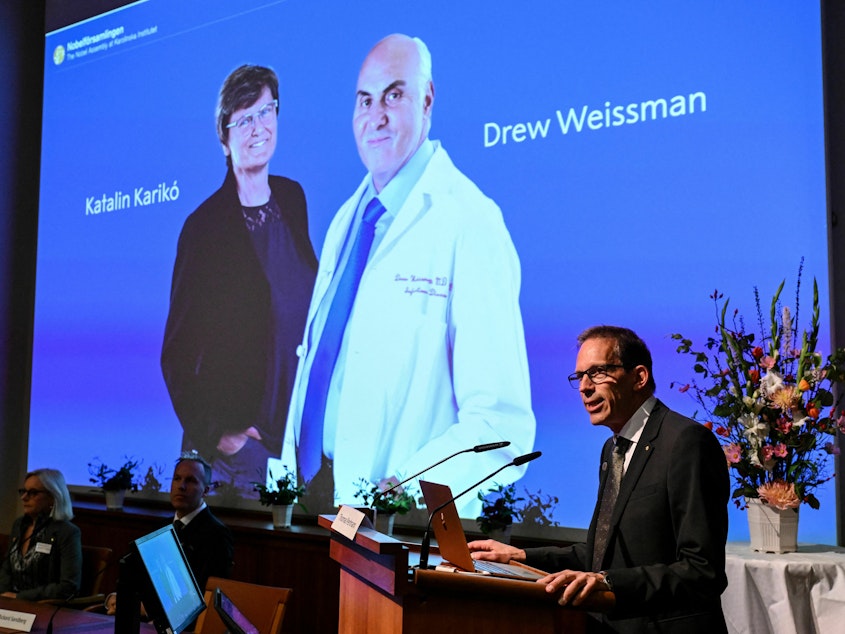Nobel Prize goes to scientists who made mRNA Covid vaccines possible

The 2023 Nobel Prize for Physiology or Medicine has been awarded to Hungarian-born Katalin Karikó and American Drew Weissman for work that enabled the development mRNA Covid-19 vaccines.
Their work, undertaken at the University of Pennsylvania, made it possible to develop vaccines based on genetic material called messenger RNA.
The scientists discovered that changing a chemical building block of mRNA – substituting pseudouridine for uridine — eliminated an inflammatory side effect that was a barrier to development of this new kind of vaccine.
They published their work 15 years before the Covid pandemic.
The vaccines developed by Moderna and Pfizer-BioNTech within a year after Covid-19 was recognized made use of the discovery.
Sponsored
Covid-19 vaccines that rely on the technology have been administered more than 13 billion times and have saved millions of lives, the Nobel Prize committee noted.
Winners of the Nobel Prize in Physiology or Medicine are selected by professors at the Karolinska Institute in Stockholm.
The first prize in the category was awarded in 1901. Of the 227 people whose work has been recognized with the prize, Karikó is only the 13th woman among them.
[Copyright 2023 NPR]



